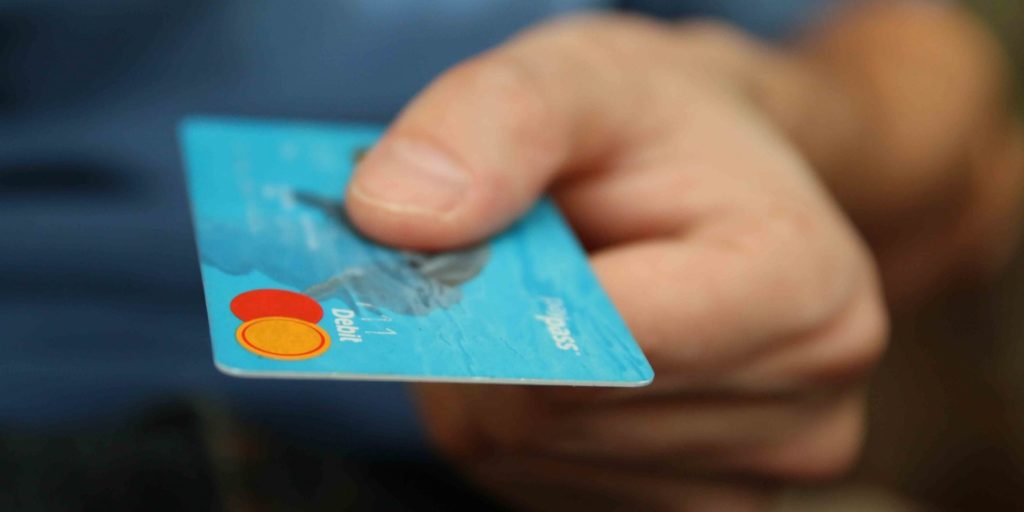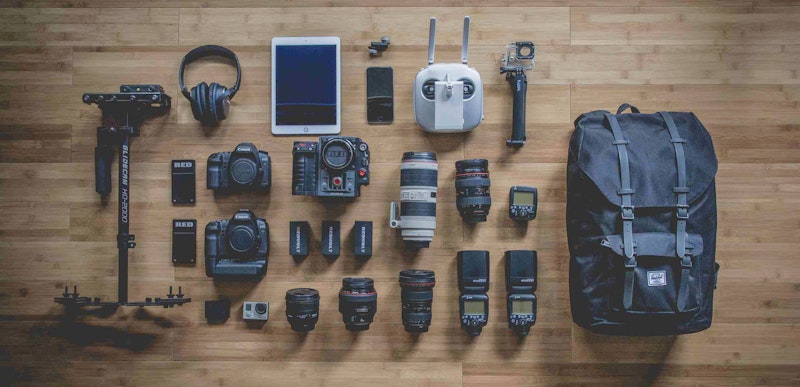Since the launch of the Canon 5D Mark II and the Red One M roughly 11 years ago, filmmakers have enjoyed a flood of new, affordable cameras that can easily capture cinematic images in a broad range of situations, often capturing more than 12 stops of dynamic range in 4K resolution. Depending on your needs, you may be able to purchase such a camera for as low as $1000.
With such low prices for cameras today, owner-operators are on a dramatic rise. It seems everyone has a camera of some sort, and if you don’t, you may be feeling a little left out. So we have to ask, should you purchase your own camera? What are the best reasons to do so, and are there any reasons not to and just stick to renting?
Renting or Owning Camera Gear: Which One is Better?
Reasons to Rent Your Film Gear

First, let’s look at the surprisingly strong argument for renting.
Flexibility
Cinematography is first and foremost a craft, and like any other craft, it’s all about picking the right tool for the job. Film stocks, lenses, digital cameras all have a unique look to them, and the job of a cinematographer is to match a combination of those looks to the project at hand.
Being tied to only one stock or set of lenses or digital camera body would be extremely limiting for someone who shoots a broad range of projects. You may want that clinical color and sharp image of the Sony F65 on your science fiction film, but when you shoot that romantic comedy an Arri Alexa or Canon C700 might be the better choice.
If you buy into one of those systems, you may find yourself spending valuable time and energy trying to match a look more easily achieved by a different tool. On the other hand, if you rent your cameras based on the project, you’re not married to any system, and you have the flexibility of easily adapting your look and workflow to the needs of the project.
Technology Loses Value With Newer Models & Tech
A second and more practical consideration is that digital cinema cameras are essentially complex computers in oddly shaped boxes. Like most computing technology, they are quickly made obsolete and can drastically lose their value.
A recent example would be the Canon C500, which retailed for $30,000 at release in 2012 and can now be purchased for $7000 new, only four years later. To put that in perspective, the average car would have only depreciated to about $15,000 in value by that point.
If you can’t make enough money off the camera itself (not off your rate, which should be the same whether you’re renting or supplying the camera) to make up for that depreciation in value, then you should seriously reconsider making the purchase.
Experiment with Different Systems
A final advantage of renting your camera is that you don’t get pigeonholed or pigeonhole yourself into a certain system. If you’re invested in your own gear, then you will be inclined to recommend your gear for every shoot you do, especially with those depreciation numbers above going through your head.
You can quickly become known as the “Red” or the “Canon” guy. On the other hand, if you rent the appropriate camera for every shoot, you can freely recommend the best tool for each project to your producer, and your clients may see you as flexible and multitalented, and you’ll rest easy knowing they’re not just hiring you for your camera.
Rental Costs are Low
The cherry on top is that while camera prices seem to be getting lower all the time, rental prices are dropping even more. We’ve seen a Red Weapon rental (a $50,000 camera) for $250 per day. You would have to shoot on that camera for 200 days in order to make the purchase worth it at that rate!
This will all depend on what cameras you prefer to work with and their availability in your region, but if your market is already flooded with the camera you are interested in, you may be able to find really good deals on rentals.
In addition to local rental houses or owners, there are also several online rental suppliers. We’ve discussed some of these before, and they can be a great resource for getting extraordinarily good deals on.
Reasons to Purchase Your Film Gear

Buying your gear, even if it can be financially risky, has its own advantages.
Investment
The first big advantage is that purchasing gear can be an investment. While renting is essentially giving money to someone else with no return (other than what the project makes).
On the other hand, purchasing your own camera means you will never have to rent that camera again, and if you’re on a project where another production company is paying for the camera rental, then you get that money. Your day rate can easily double if you’re bringing a camera to your projects. In this way, a camera can be a major cost upfront, but because of the potential return on that purchase over time, it will hopefully turn into a lucrative investment.
It should be noted that this is more likely to be true if you can match the work you typically do to the camera system you purchase. If you are continually doing music videos that demand 4K high-speed material, then purchasing a Canon C300 Mark II would not be a wise choice. On the other hand, if you’re constantly doing run-and-gun documentaries, then the Canon may be the perfect choice for you.
Whatever you do, it is not typically the best idea to purchase a camera based on work that you hope to be doing in the future. This is a very speculative kind of investment, and in many cases simply owning the camera does not get you any closer to your goal and may even set you back a few steps because of the financial burden it presents.
Rent Out Your Equipment to Others
It should also be noted that if you have the right connections, you can actually make quite a bit of money by renting your camera to other shooters or productions. Whether it’s through a service like ShareGrid or by subletting with a rental house, your camera can be making you money between your projects, while you take a vacation.
In order to succeed at this, though, you should find out if the camera you are looking to purchase is in high demand and find out if anyone you know would come to you to rent one or if there are any local rental houses that don’t have enough of those cameras in stock. If you fail to learn these things and purchase a camera that is in low-demand, you may just end up with a $5000 paperweight.
Shoot on Your Schedule
Another great thing about owning your own gear is that you can go out and shoot whenever you want! How much this helps you will really depend on how much you take advantage of it. Some people are very good at spinning out projects all the time; others require more planning and resources. If you’re the kind that likes to shoot frequently, then owning your own camera can be almost a necessity.
Understand Your Camera In and Out
Finally, owning a camera can give you the advantage of knowing your tool very well. While renting many different systems allows you to match the tool to the job, you will likely be less familiar with each camera’s workflow than if you work frequently with your own camera.
For instance, grading Sony’s S-Log profiles can be really tricky. Knowing the intricacies of that camera and its workflow can be really valuable, rather than just picking it up every few months for the occasional project.
Customize Your Camera Kit
In the same vein, you can customize your camera kit to fit your workflow and shooting style. There is nothing more obnoxious than getting a camera package from the rental house and discover that you need an additional piece of equipment to match the camera to your needs. This is especially true if you rent from owner-operators on a platform like ShareGrid.
We’ve found that camera packages on such platforms are often tailored to someone else’s shooting needs, or they may simply be missing pieces that are essential because the owner was on a budget. It’s comforting to rest easy knowing your kit has everything you need to shoot the way you do.
The arguments for both renting and purchasing a camera are each compelling, and the decision will largely depend on your needs as a shooter and your business’s financial situation. The greatest advice we’ve have ever heard on the matter is to make the decision a business decision.
The latest camera from so-and-so may seem like the hottest, coolest thing out there, just waiting to launch your films into the festival circuit and turn you into the next Emmanuel Lubezki, but if you don’t have a plan for making money off that camera, then it is not a good business decision, and it will likely set you back with your goals.
On the other hand, it’s not good business to rent the same camera week after week and plan to keep doing that for the foreseeable future (unless you’re getting a killer deal on that rental). In that instance, you may want to look into the cost of purchasing one and see if you can save any money by doing so. If you always look at gear purchases with business glasses on, you’ll probably be glad you did.



























